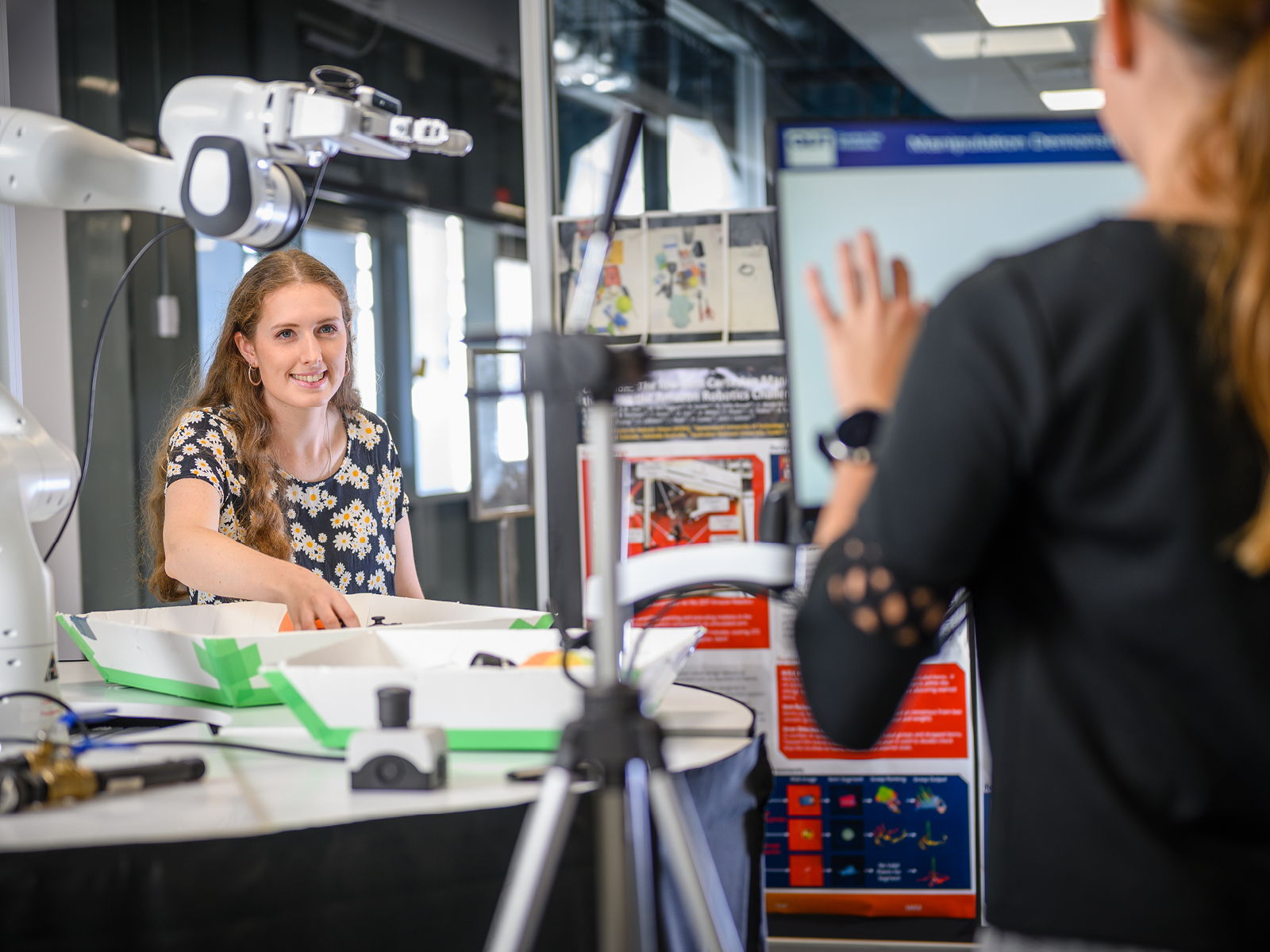Four fascinating guided tours, part pf the 2022 Future of Food Summit, showcased QUT’s world-class capabilities in robotics and automation, agrifood innovation, tropical crops, advanced analysis and Indigenous ingredients.
QUT’s diverse facilities include labs for developing and testing agricultural and manufacturing robotics, and for education and research into agrifood production, processing, commercialisation and distribution – including of Indigenous ingredients.
All these capabilities were on display for delegates of the 2022 Future of Food Summit via agrifood-related guided tours.
Free for Summit guests, four separate, small-group tours took in the QUT Robotics Centre; the university’s Centre for Agriculture and Biocommodities (CAB); its Central Analytical Research Facility (CARF); and a local Indigenous garden.
Three of the four tours took place on QUT’s Gardens Point campus in Brisbane’s CBD; the fourth was at Kelvin Grove State College. Some delegates took back-to-back tours.
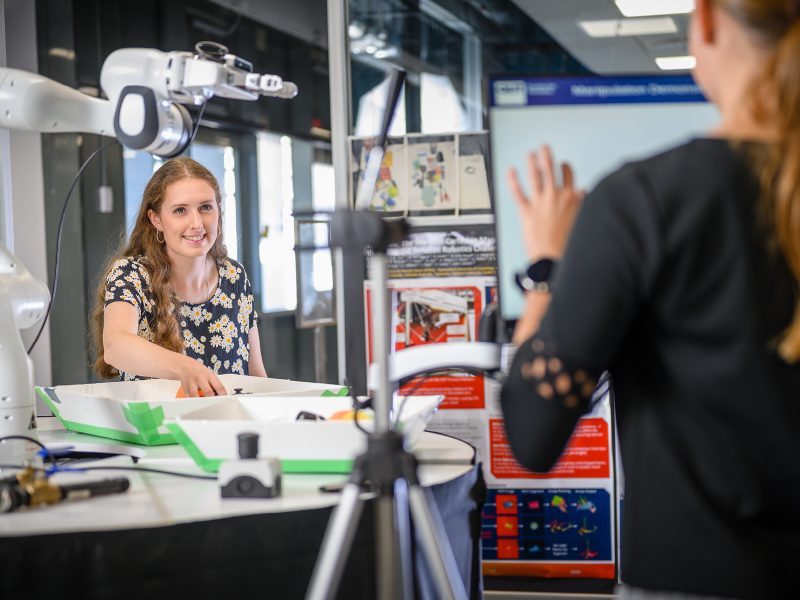
QUT Centre for Robotics. Credit: QUT
QUT Centre for Robotics Tour
Length of tour: 20 mins + 10 min Q&A
Group size: 12 people
Guide: Dr Chris Lehnert, Chief Investigator, QUT Centre for Robotics
Robots and other autonomous systems are changing the way we live, work and play. QUT’s research projects in these areas are focused on developing technology that can be used to improve our understanding and management of the world around us to benefit humanity.
The QUT Centre for Robotics builds on a decade of investment at QUT in robotic research and translation which has been funded by QUT, the Australian Research Council (ARC), Queensland Government, various cooperative research centres and industry.
The Centre is at the forefront of research and innovation in intelligent robotics, solving problems with a broad array of applications and translating laboratory research into constructive commercial and societal outcomes.
It is involved in educating, training and developing the next generation of talent to meet growing demand for robotics and automation across a multitude of fields, including agriculture, high-tech protected cropping, modern food manufacturing and distribution.
QUT Centre for Robotics also provides leadership in technological policy development. Its experts engage in ongoing discussion with industry and government about how best to address pressing current and future challenges, and contribute to spirited societal debate – including crucial conversations about the role of automation in future food production and delivery systems.
Find out more about QUT Centre for Robotics’ projects here.
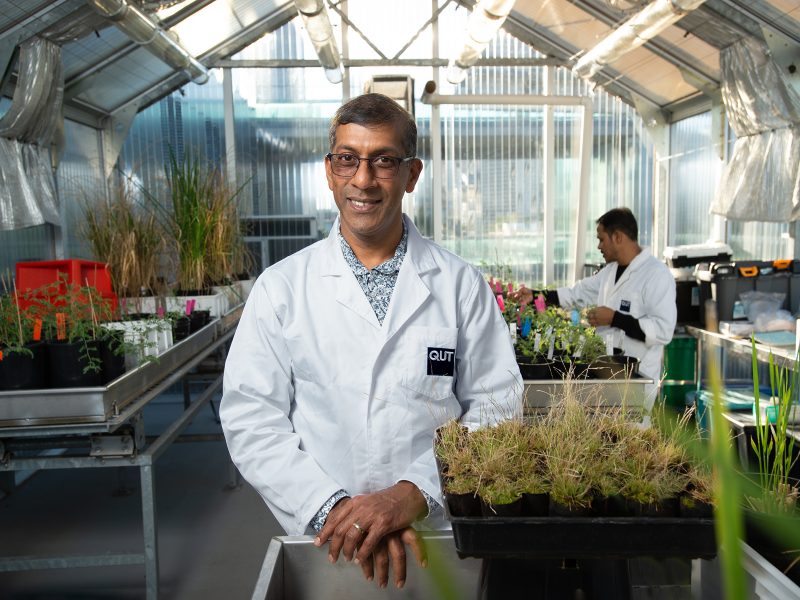
Prof. Sagadevan Mundree. Centre for Agriculture and the Bioeconomy. Credit: QUT
Centre for Agriculture and the Bioeconomy tour
Length of tour: 30 mins + 15 min Q&A (45 mins total)
Group size: 10 people
Guides: Rachel Self and Jo Blinco
QUT’s Centre for Agriculture and the Bioeconomy (CAB) brings together the university’s substantial expertise in agriculture and bioeconomy research to deliver science-backed solutions that help feed the world sustainably and develop cleaner, greener bioproducts.
CAB’s unique mix of expertise in plant biotechnology, process engineering, industrial chemistry and commercialisation enables an end-to-end R&D pipeline that runs from laboratory to real-world research outcomes.
The Centre specialises in tropical agriculture and the high-value biocommodities sector, delivering locally and globally relevant research and providing consulting solutions in biotechnology and biomass processing. It research foci include:
- tropical crop specialisations in bananas, sugarcane and tropical pulses;
- genetic manipulation for improving the nutritional status of food, and to enhance disease resistance and stress tolerance in tropical crops;
- developing advanced techniques for disease diagnosis and control; and
- manufacturing high-value ‘green chemicals’, biofuels and other bioproducts from agricultural waste.
The CAB tour took in the Centre’s bioprocessing and fermentation laboratories and the Centre for Biorefining Research.
Find out more about the Centre for Agriculture and the Bioeconomy here.
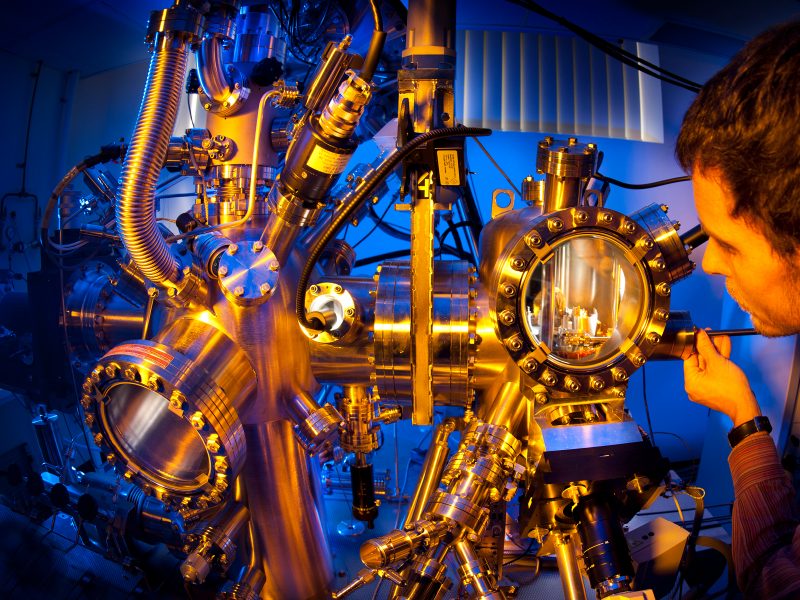
Central Analytical Research Facility (CARF). Credit: QUT
Central Analytical Research Facility (CARF) tour
Length of tour: 45 mins + 15 min Q&A (total: 60 mins)
Group size: 12 people
Guide: Professor Charlotte Allen
QUT’s Central Analytical Research Facility (CARF) provides specialist equipment and expert scientists to help researchers and industry carry out analytical research. CARF’s state-of-the-art equipment and expert technologists offer transdisciplinary analytical support, including sample preparation, data collection and interpretation of results.
Commercial in-confidence projects with sensitive IP can rest assured that their secrets will be safe at CARF, with strict protocols in place to ensure that all samples and information are secure.
CARF’s laboratories and equipment are spread across QUT campuses, with the main node located in the Science and Engineering Centre at Gardens Point campus. The expertly guided tour took in an array of CARF facilities. The relevant labs were observed via viewing windows, so no special protective clothing or shoes were required.
Find out more about CARF here.
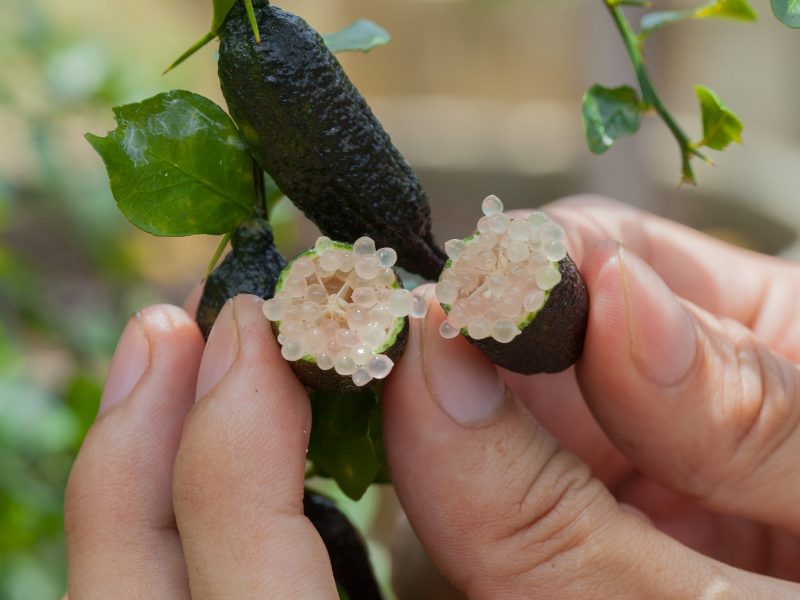
Jagum Barrambin Indigenous Garden tour
Length of tour: 90 mins
Group size: 20 people
Guides: Chris Fullon from Australian Urban Growers, and an industry partner from QUT’s Centre for Agriculture and the Bioeconomy (CAB)
Jagum Barrambin Indigenous Garden, the work of the Kelvin Grove State College’s Environmental Committee in conjunction with QUT’s Centre for Agriculture and Biocommodities (CAB), has the Aboriginal name Jagum Barrambin, meaning ‘a garden in the windy place’.
Students, parents, teachers, staff and community members have spent numerous hours working in the garden to make it the glorious and fascinating space that exists today.
The garden is dotted with information plaques that display the names and Indigenous uses of each species therein – from bush tucker ingredients to medicines to fishing tools. Its centrepiece is a beehive, symbolising the significant role played by native bees and honey throughout First Nations history.
“It is hoped that all who enter Jagum Barrambin will enjoy the tranquil space and learn more
about the ingenuity of Aboriginal Australians,” says Kelvin Grove State College teacher, Environmental Committee coordinator and Indigenous garden enthusiast Lynn Lancaster.
“As a teacher, I feel that my students and I are learning about Indigenous culture in an authentic and respectful way.”


